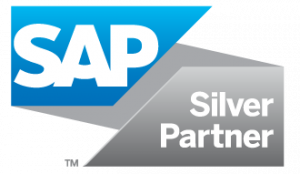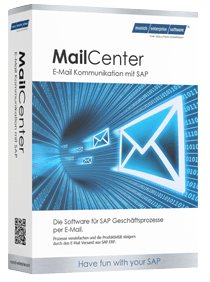In today’s digital business world, companies can hardly avoid SAP. But what is behind this term and why do so many companies rely on this software solution?
SAP – briefly explained
SAP stands for “Systems, Applications, and Products in Data Processing.” Originally founded as a German software company, SAP SE has since developed into one of the world’s leading providers of business software. SAP solutions help companies to digitally map business processes end-to-end and make them more efficient.
Table of Contents
- SAP – briefly explained
- SAP S/4HANA – the future of enterprise software
- Why do companies rely on SAP?
- SAP – Where does the term come from?
- All-in-one ERP solution for all company sizes
- SAP Modules and Applications
- Get the most out of SAP solutions
- How munich enterprise software helps
- Conclusion: SAP is more than just software

| Fact | Details |
|---|---|
| Founded | 1972 in Weinheim, Germany |
| Founder | Five former IBM employees (including Hasso Plattner, Dietmar Hopp) |
| Goal of the founders | SAP was founded to develop integrated real-time software as a standard solution – in contrast to the elaborately programmed individual software that was common in the 1970s |
| Head office | Walldorf, Baden-Württemberg |
| Head office | over 110,000 worldwide |
| Head office | Largest ERP provider worldwide, most valuable German company (market capitalization 2025: €170 billion) |
With SAP, companies can control central areas such as financial accounting, purchasing, sales, warehouse management, production or human resources via a central platform. The result: processes are accelerated, errors are reduced and transparency is significantly increased.
SAP S/4HANA – the future of enterprise software
One of SAP’s most modern products is SAP S/4HANA – the latest business suite based entirely on the innovative SAP HANA in-memory database. With S/4HANA, organizations gain real-time access to their business data, enabling faster decisions and more efficient operations. The interface is modern and intuitively designed – keyword SAP Fiori – and also allows access to SAP functions on mobile devices.
Why do companies rely on SAP?
- Scalability: Whether it’s a start-up or a large corporation, SAP is growing with the company.
- Solutions: Whether it’s mechanical engineering, consumer goods, or services – SAP offers industry-specific functions.
- Future-proofing: SAP is continuously investing in new technologies such as artificial intelligence, machine learning, and cloud computing.
- Worldwide Standard: SAP is used by companies worldwide and has an excellent reputation for stability and security.
SAP – Where does the term come from?
In 1972, five IBM employees quit their jobs and set up their own company in Walldorf, Baden-Württemberg. The company was founded by Hasso Plattner, Hans-Werner Hector, Dietmar Hopp and Clas Neumann.
The idea is digital software for real-time payroll accounting. Which should replace the then common punch card system forever. This is the starting signal for system analysis and program development GbR – abbreviation SAP. Today, according to Wikipedia, the abbreviation stands for “systems, applications and products in data processing”. Originally known as SAP R/2, the software has evolved over time and is now available in the form of S/4HANA, which is next-generation ERP software.
In the early years, the products were well received by the market. This leads to steady growth and increasing sales. Due to its success, the company dares to go public in 1988. In the 1990s, the company managed to increase its turnover tenfold. This is partly due to the introduction of SAP R/3, which lays the foundation for today’s SAP products.
After the turn of the millennium, SAP takes over numerous well-known corporations. These include companies such as TechniData, Success Factors or Concur Technologies. Today, more than 91,000 employees work for the company. Today, SAP generates annual sales of more than $22 billion.
According to a study by the auditing firm PwC, SAP is the most valuable company in Germany. According to this definition, a market value of more than 100 billion euros means number one in 2018, ahead of Siemens. Together with Microsoft, IBM, Google and Oracle, the company from Walldorf is one of the largest software manufacturers in the world. SAP is a global leader in enterprise software, including ERP software used by organizations to manage their business processes.
All-in-one ERP solution for all company sizes
Why it’s worth switching to an SAP system
SAP ERP enables the administration and presentation of all business processes within a system. From accounting, through controlling, to production and warehousing.
Around 335,000 customers worldwide rely on the Walldorf-based Group’s technology. These include global players such as Coca Cola, Gazprom and Siemens. SAP SE is the largest software manufacturer in Europe and one of the most influential companies in the world.
The system has developed into the cross-industry software standard. Around 70 percent of global economic output runs through SAP ERP (Enterprise Resource Planning).
In order to represent the interests of the users, separate associations have been created. The so-called user groups.
By implementing a single standard software, many processes can be automated. Manual entries are reduced to a minimum. In addition to the main product SAP ERP, which primarily serves enterprise resource planning, the company has developed additional modules over the years to cover other divisions and processes.
SAP Ariba Supplier Risk is an innovative supplier management program. Marketing activities can be recorded very well with the SAP Marketing Cloud. With SAP SuccessFactors Employee Central, the provider also provides a special tool for human resources.
SAP Modules and Applications
While most software providers today rely on SaaS solutions that are provided via cloud service, SAP presents a so-called on-premise system. It is installed locally on the user’s server. The following modules are available for you with an SAP ERP system:
- FI = Finance
- CO = Controlling
- TR = Treasuring
- EC = Enterprise Controlling
- IM = Investment Management
- PS = Project System
- WF = Workflow
- ECM = Enterprise Controlling Management
- IS = Industry Solutions
- SD = Sales Distribution
- MM = Materials Management
- PP = Production Planning
- QM = Quality Management
- PM = Plant Maintenance
- HCM = Human Capital Management
- BW = Business Warehouse
- CRM = Customer Relation Management
- FS = Financial Solutions
Get the most out of SAP solutions
Due to the wide range of functions of SAP ERP software and SAP S/4Hana, many companies find it difficult to exploit the full potential of their solution. Often the time and know-how to implement the system correctly is lacking.
We at Munich Enterprise solve this problem with an extensive consulting offer. On request, we can help you adapt the different modules to your requirements.
Among other things, we use the ABAP component for this. This is an in-house programming language of SAP. This enables individual coding and function extensions.
In addition, we support our customers with useful add-ons to complement and expand the technical capabilities of SAP software. SAP Mail is particularly noteworthy at this point, as it allows you to manage and send emails from the SAP system.
How munich enterprise software helps
We at munich enterprise software GmbH specialize in SAP add-ons. Our solutions complement the standard SAP functions in a meaningful way and make daily work in the SAP system more efficient.
Our MailCenter product helps in many areas. Here are a few examples:
- MailCenter for e-mail communication from SAP
- Outlook integration that connects SAP with Microsoft Outlook
- Digital approval procedures for quick approval of orders or orders
- Monitoring Add-Ons for Monitoring SAP Processes
With over 20 years of experience, we know what is important when it comes to SAP solutions. For us, the added value for the user is always in the foreground – intuitive, quickly ready for use and flexibly adaptable.
Conclusion: SAP is more than just software
SAP means efficient corporate management, better data quality, and smart digital processes. Anyone who invests in digitalization today cannot avoid SAP. And with the right extensions from munich enterprise software, companies can get the best out of their SAP system.






